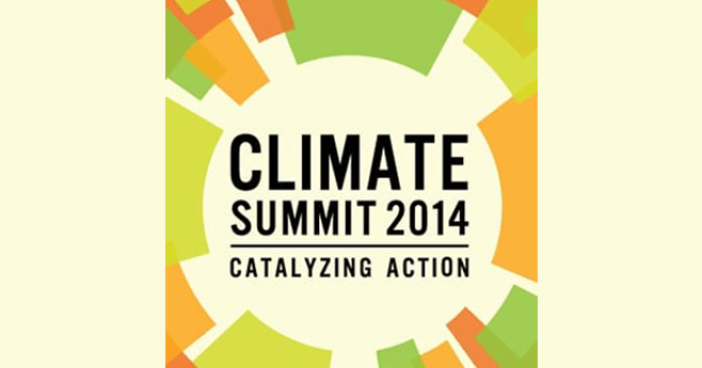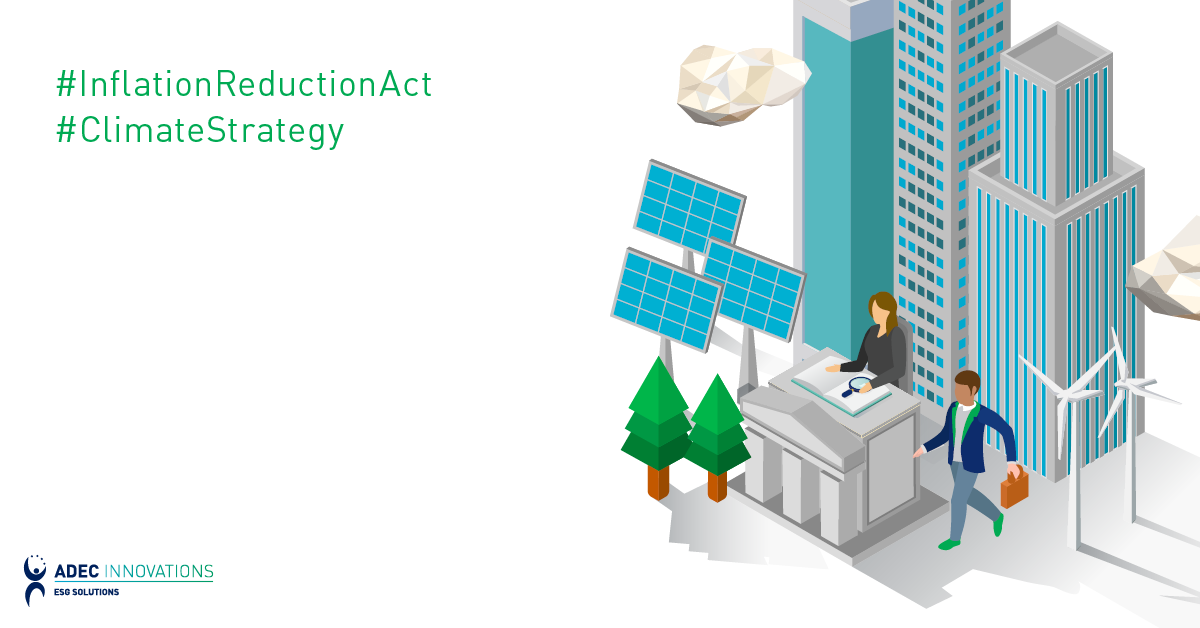September 22-28, 2014, The Climate Group, an international non-profit organization that promotes a low-carbon future, held the 6th annual Climate Week NYC. This assembly is an international platform for world business leaders, investors, government officials, members of civil society, and environmental advocates to discuss and form resolutions to combat the alarming dangers of climate change. The forum gained a lot of attention this year, as it coincided with the first ever UN Climate Summit, which was attended by some of the world’s most influential leaders.
In a speech delivered by European Union (EU) Commission President José Manuel Barroso during the UN Climate Summit, he emphasized that climate change is a threat that disrupts the economy and society, and hinders development for all nations. However, he also sees climate change as an opportunity for countries to reinvent themselves; to become cleaner and greener sooner rather than later. To support the EU’s ambition of transforming the world into a healthier place to live, President Barroso announced that the EU will be allocating 20% of its overall 2014-2020 budget, or a total of €180 billion, to climate action plans.
Similarly, United States President Barack Obama reported that the US is continuing to do its part in cutting carbon emissions. In his speech, he shared that through the Climate Action Plan, standards were set for power plants to reduce the amount of carbon pollution they produce each day. In their latest renewable energy scheme, the US is targeting to trim down their carbon emissions by 300 million metric tons by 2030. Greenhouse gas (GHG) emissions were also discussed, and President Obama announced that the US will have reduced their GHG emissions by a stunning 80% come 2050.
Road to RE 100
Established by The Climate Group and in partnership with CDP, RE 100 was launched during Climate Week. RE 100’s year 2020 target is for 100 of the largest corporations worldwide to fully commit to using only renewable energy in their operations. These companies will improve their overall reputation, while lessening their energy costs and achieving energy security.
Sustainability is fast becoming a sound business framework for corporations and a way of life for many. As such, companies are adapting to these changes. In an article from The Climate Group, several leading companies, such as IKEA, Swiss Re, BT, Commerzbank, Formula E, H&M, KPN, Mars, Nestlé, Philips, Reed Elsevier, J. Safra Sarasin and Yoox, have all made a stand against climate change and pledged to become 100% renewable.
 IKEA Chief Sustainability Officer Steve Howard said in a statement that they are planning to invest approximately EUR 1.5 billion for renewable energy projects to meet their 2020 goal. Likewise, Swiss Re Head of Environmental and Commodity Markets, Juerg Trueb, talked about their decision to go 100% in their renewable power approach because they see climate change and the energy requirements of the developing world as pressing matters that need to be addressed immediately.
IKEA Chief Sustainability Officer Steve Howard said in a statement that they are planning to invest approximately EUR 1.5 billion for renewable energy projects to meet their 2020 goal. Likewise, Swiss Re Head of Environmental and Commodity Markets, Juerg Trueb, talked about their decision to go 100% in their renewable power approach because they see climate change and the energy requirements of the developing world as pressing matters that need to be addressed immediately.
Shaping the “Low Carbon Economy”
We Mean Business, an association of different organizations working with top business leaders and investors supporting a low-carbon economy for all, recently disclosed a report entitled The Climate Has Changed. It discusses how ambitious climate action plans significantly revolutionize the way businesses operate. The report is divided into three parts:
1. Making Good Financial Returns
It has been proven in many cases that by implementing low-carbon actions, companies realize better internal rates of return (IRR). The US, EU, India, and South Africa have invested in such practices with their energy-efficient buildings and industrial processes, low carbon energy purchase and installation, process and transport emissions reductions, and behavioral changes, among others, which have made them environmentally sustainable, as well as financially attractive in the market.
2. Maximizing Carbon Returns
Due to climate change, the needs and behavior of corporations have changed as well. Companies apply innovative measures to maximize their financial returns, as well as their carbon emissions savings. Although this report reflects the positive attitude of companies who have significantly reduced their emissions intensity in 2012 and 2013, there is no assurance that they have clear plans set for the future. Long-term policies must be established to encourage companies to include a climate action framework in their plans.
3. How to Accelerate the Low Carbon Economy
In order to fully attain a low-carbon future, companies must accomplish two things: (1) make bold and ambitious climate action plans, and (2) create bold business policies. Businesses need these two factors in order to drive the future of a low-carbon economy. Making big investments to fight climate change makes perfect business sense.
FirstCarbon Solutions Can Help You

The impact of climate change on business and society are felt every day. To prevent further risks for their business and the environment, companies should reinvent themselves by turning to more sustainable practices and goals. FirstCarbon Solutions has the experience and resources to support the environmental sustainability needs of various organizations. For 30+ years, FirstCarbon Solutions has designed and delivered solutions for companies to support their regulatory compliance efforts, environmental impact assessments, and mitigation programs for sustainability across their respective organizations. Our extensive consulting background in the latest carbon trends and GHG management guides our clients to adapt sustainable practices in their daily operations to help mitigate the harmful effects of climate change and positively affect their bottom line.





